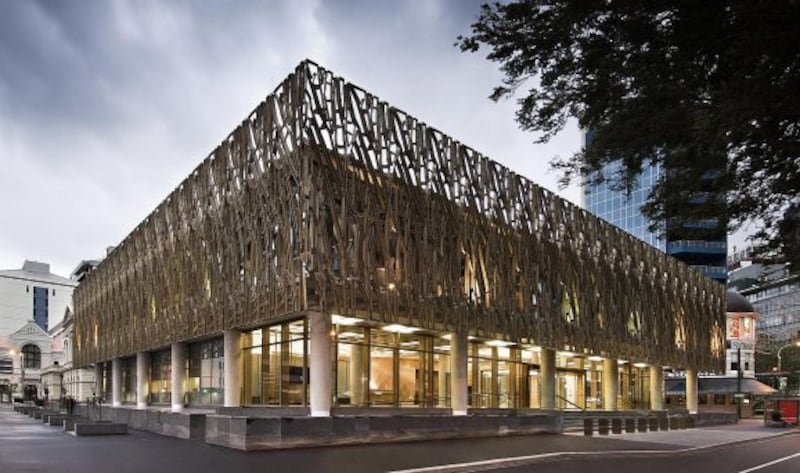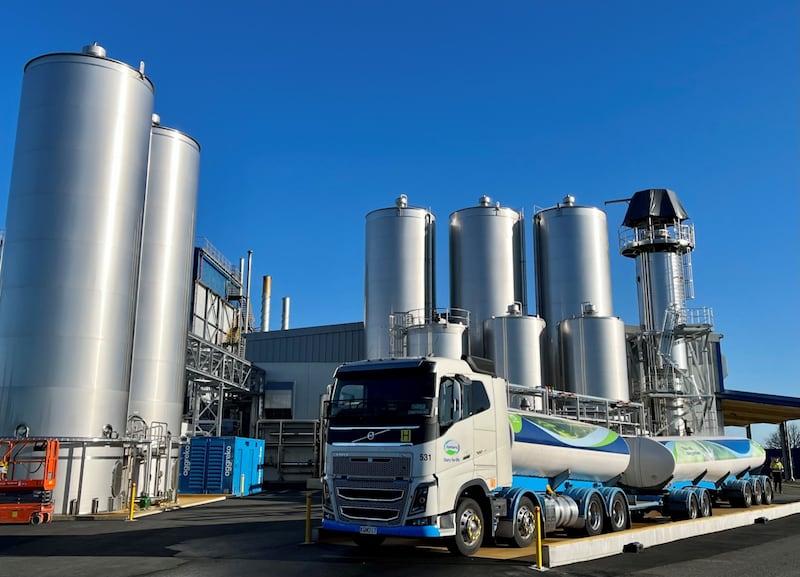Seven corporates could be forced to pay damages for their role in causing climate change if Ngāpuhi climate activist Mike Smith wins his case against them in court.
Smith has been trying to sue them since 2018 and successive courts have struck out his case, arguing that Parliament was the place to make laws on climate change rather than through common law actions.
However, last week the Supreme Court ruled that he could run the case though its judgment several times said it was not deciding whether the case had any validity.
The seven companies that are being sued include companies like Z Energy, Genesis Energy, and BT Mining. But Smith says, without doubt, the biggest polluter is dairy company Fonterra.
“They represent the interests of the farming sector, which produces about 49% of our greenhouse gas emissions. So they’re the big elephant that’s in the room.”

Landmark case
Smith’s case will be tried under what is known as the law of torts, under which people can sue to redress a wrong done to them, such as by negligence. Smith says previous rulings found that there was currently no avenue under criminal law to sue large polluters.
“The case was filed in 2018, and it worked its way up through the courts to the court of appeal, where the case was struck out on two legal points. One was causation, which was that the actions of the companies were causing me harm. The second reason it was struck out was that the case was taken under the law of torts.”
“This makes this case fairly unique, in that, the law of torts has not been used previously, or historically, in a case as wide and substantive as the one that I am taking.”
“The fact that they can now go to court has created a lot of interest and excitement in the legal fraternity right around the globe.”
Legal action only tip of the iceberg
Mike Smith and his partner, Hinekā Mako, have been at the forefront of climate action for decades. He has held roles at Greenpeace leading climate change action, as well as being climate spokesman for the Iwi Leaders Forum.
He says change must come from the grassroots, and he is also challenging the new government’s position on climate change and rolling back policies such as mining.
“This legal strategy is not the only course of action that we are taking. We are currently working across te ao Māori, bringing people up to date with the latest climate emergency, and what we can do to lower emissions. What we can do to adapt to the baked-in impacts of climate change.
“The new government that’s come in has indicated that it will be going backwards on climate policy, which is a real concern to us.”
“Climate risk is accelerating at both scale and speed and so obviously we need to be leaning forward into positive ways of reducing emissions.”
Meanwhile Fonterra co-operative affairs managing director Mike Cronin said the company was disappointed by the Supreme Court decision.
“The Supreme Court’s decision overrules a decision by the Court of Appeal, which had unanimously struck out all three of Mr Smith’s claims as being legally untenable.

Fonterra will fight the case
“To be clear, the decision by the Supreme Court does not determine any liability of Fonterra or the other defendants. Mr Smith has not yet been required to present any evidence to support his claims. The Supreme Court has simply said that Mr Smith’s claim is allowed to progress through a standard High Court trial.
“Fonterra agrees with Mr Smith that GHG emissions have adverse effects on the climate and that we all need to take steps to reduce our emissions. However, our view is that Parliament, not the courts, is the appropriate place to determine public and economic policy on matters of significant public interest such as climate change,” Cronin said.
Fonterra recently set a target to reduce on-farm emissions intensity by 30% by 2030 from a 2018 baseline.
“We also have targets to reduce our Scope 1&2 operational emissions by 50% by 2030 from a 2018 baseline. We’re investing in innovation and infrastructure to remove greenhouse gas emissions from our manufacturing sites, and have committed to stop using coal by 2037, on our way to being net zero by 2050.
Fonterra intends to oppose Smith’s claim in the High Court.



